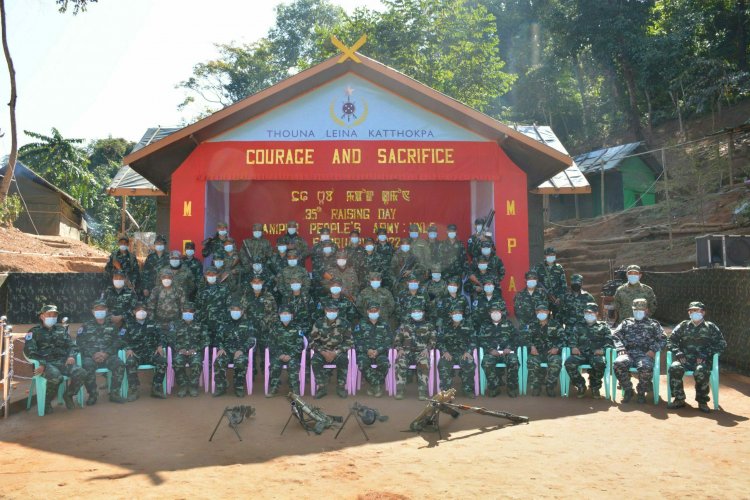Manipur: UNLF Peace Accord; Peace could remain Allusive
Asia News Agency

The northeast has been unsettled for a major part of the years post-independence. In time, there have been improvements in the security situation. This is largely due to peace agreements with the Northeast militants. These, according to Yashovardhan Azad (chairman of DeepStrat, a former central information commissioner and a retired IPS officer who served as secretary, security, and special director, Intelligence Bureau) “have helped usher normalcy in states like Mizoram, Tripura, and Shillong. In Assam, except for the United Liberation Front of Asom (ULFA), separatist groups have signed accords and the state removed AFSPA from four more districts in October.
“Nagaland and Manipur are the two states where all groups have not come to the table…….National Socialist Council of Nagaland — Isak-Muivah (NSCN-IM) signed an accord in 2015. It has been articulating differences on the issue of joint sovereignty, separate flag and Constitution. However, the series of tripartite accords initiated by the Centre since 2014 have led to 6,112 insurgents surrendering and a substantial decline in violence in terms of security forces, civilian casualties and number of violent incidents.”
About UNLF
It is debatable if the latest peace accord signed with UNLF, will also act as a harbinger of peace in Manipur. UNLF, writes Azad “is only one of the nine valley-based insurgent groups to sign the accord and Manipur has abrogated the Suspension of Operations (SoO) agreement with the Kuki militant groups. Over the years, UNLF has experienced divisions, leading to the emergence of the Pambei faction in 2021. Khundongbam Pambei, the former chairman, created this group after parting ways with the central committee. It is the Pambei faction which has advocated for dialogue, while the group led by N C Koireng has refrained from engaging in talks. Their relative strengths are still to be assessed after they are settled in camps with their weapons, under the SoO agreement. Some of the UNLF cadres and leaders are still based in Myanmar where they are on the backfoot due to a lack of continued patronage from the military junta which is facing heavy assault from insurgents in three states.”
Hurdles to peace
The biggest hurdle in the road to peace “remains the floating looted arms numbering around 4,500 in various hands — militants, self-styled activist groups and private militias….."
The terms of the agreement with UNLF are not known. The involvement of militants in the latest ethnic conflict, writes Azad “may complicate the issue further. If criminal cases are withdrawn, then similar concessions have to be given on the other side to the Kuki militants who professedly are continuing with the SoO agreement. More problematic would be the withdrawal of cases on serious crimes. The demand for equal treatment by the Kuki militants is bound to come sooner or later.”
Peace agreements challenging to implement
Peace agreements can be challenging to implement, argues Azad. “The primary issue is the multiplicity of stakeholders and the divergent interests of different groups. Diverse demands from various ethnic and/or tribal communities in regions like Manipur and Nagaland are difficult to reconcile. Each group has distinct historical grievances, aspirations and demands, making it hard to arrive at a resolution that satisfies all parties. The fragility of peace agreements also lies in their vulnerability to disruptions caused by extremist factions or splinter groups within these communities.
“Moreover, the implementation of peace agreements also faces challenges due to historical distrust between the communities and the government. Consequently, the lack of faith in the government’s commitment to fulfilling promises outlined in peace agreements undermines their effectiveness. External influences and geopolitical factors may also play a role. The reluctance of neighbouring countries to support peace processes or interference by external actors can destabilise the region, implementing peace agreements a daunting task.”
















